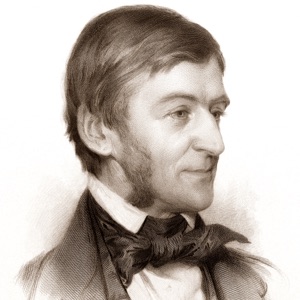
Ralph Waldo Emerson (1803 – 1882) was an American essayist, lecturer, philosopher, and poet who led the transcendentalist movement of the mid-19th century. Emerson served as a junior pastor in Boston’s Second Church, but after his first wife’s death, he began to disagree with the church’s methods, eventually leading to his resignation. Upon his return home from a tour of Europe in 1833 he began writing his first published essay, Nature. In March 1837 Emerson gave a series of lectures on the philosophy of history in Boston, which began his career as a lecturer. He eventually gave as many as 80 lectures a year, traveling across the United States. He disseminated his thoughts through dozens of published essays and more than 1,500 public lectures.

Quotes by Ralph Waldo Emerson…
What your heart thinks great is great. The soul’s emphasis is always right.
All violence, all that is dreary and repels, is not power, but the absence of power.
He is great who is what he is from Nature, and who never reminds us of others.
We are never without a pilot. When we know not how to steer, and dare not hoist a sail, we can drift. The current knows the way, though we do not. The ship of heaven guides itself, and will not accept a wooden rudder.
The soul’s communication of truth is the highest event in nature… and this communication is an influx of the Divine Mind into our mind… Every moment when the individual feels invaded by it is memorable.
There are moods in which we court suffering, in the hope that here, at least, we shall find reality, sharp peaks and edges of truth. But it turns out to be scene-painting and counterfeit. The only thing grief has taught me is to know how shallow it is.
There is one mind common to all individual men. Every man is an inlet to the same and to all of the same. He that is once admitted to the right of reason is made a freeman of the whole estate. What Plato has thought, he may think; what a saint has felt, he may feel; what at any time has befallen any man, he can understand. Who hath access to this universal mind is a party to all that is or can be done, for this is the only and sovereign agent.
I wish to be a true and free man.
I will not move until I have the highest command… Your virtuous projects, so called, do not cheer me. I know that which shall come will cheer me. If I cannot work, at least I need not lie. All that is clearly due today is not to lie.
The characteristic of heroism is its persistency. All men have wandering impulses, fits and starts… But when you have chosen your part, abide by it, and do not weakly try to reconcile yourself with the world. The heroic cannot be the common, nor the common the heroic.
